It was a very quiet morning on the ward – I had only one patient. I pulled up a chair beside him and we were off. On a two-hour talk. The twists and turns were several and I quite liked the guy. But then it got difficult…
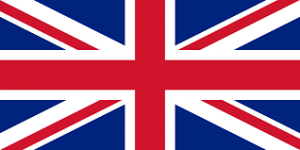 The twenty-seven-year-old man was the only patient on the ward. He had sustained a broken clavicle bone in a kickboxing session. The fracture had been mended and he’d gone home the same day, but the wound started to bleed and he’d had to come back in. A doctor review and redressing soon followed and it was decided that he should stay the night for observation. The following morning he was all fine and he’d been transferred down to the day surgery ward, where he was waiting for his uncle to come and pick him up.
The twenty-seven-year-old man was the only patient on the ward. He had sustained a broken clavicle bone in a kickboxing session. The fracture had been mended and he’d gone home the same day, but the wound started to bleed and he’d had to come back in. A doctor review and redressing soon followed and it was decided that he should stay the night for observation. The following morning he was all fine and he’d been transferred down to the day surgery ward, where he was waiting for his uncle to come and pick him up.
It was all quiet. Just an hour earlier, it had been full of bustle and activity as fifteen patients were admitted, each seen by a nurse and several doctors who often come with a whole entourage of students, poor things that are always trying but failing not to be constantly in the way. But now the first patients were inside theatres and the rest sitting bored, nervous and hungry in the waiting room, watching late morning telly or checking their phones.
“Where you from, David?” The young man looked at me curiously from where he was on his trolley. His head only partially turned and the eyes moved all the way to their corners. A slight and careful smile on his smooth face with eyes of a sad puppy made him seem serious, slightly embarrassed and a little suspicious.
“Guess!” I said cheerfully, kicking off the guessing game that I so often use as an icebreaker with my patients and which I sometimes have to end prematurely because many Brits are so bad at geography, a ‘great nation-trait’ they share with the Americans.
“I don’t know…” he started. His voice was soft, matching the eyes, and so faint, it was actually hard to hear what he said.
“… I thought maybe… Israel…?” The eyes, in their corners, checked me out thoroughly and his good hand touched his beard, a decent, slightly wild one with a two or three-week old moustache to match. The answer surprised me. It had never been suggested before. Usually, it was Italy or Spain followed by Holland, Germany, Poland or Denmark. Maybe Russia or even South Africa.
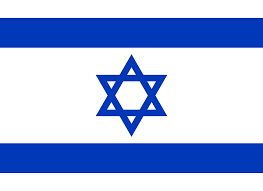 “Israel?!” I blurted out, making the two nurses who sat idly by the desk look up with raised eyebrows. I quickly collected myself and said in a more normal tone: “Why is that?” His hand continued to touch his beard and there was slight shuffle of legs under the blanket, like he felt awkward. Several seconds of silence passed before he responded. He spoke that way, with long pauses in between sentences. More like a man from north Finland than south London.
“Israel?!” I blurted out, making the two nurses who sat idly by the desk look up with raised eyebrows. I quickly collected myself and said in a more normal tone: “Why is that?” His hand continued to touch his beard and there was slight shuffle of legs under the blanket, like he felt awkward. Several seconds of silence passed before he responded. He spoke that way, with long pauses in between sentences. More like a man from north Finland than south London.
“I don’t know… I thought you might be…” His voice trailed off but the sad eyes remained on me. It seemed like he gave it all deep thought.
I’m all for giving replies some thought before farting them out. I’m often kind of slow myself. Time and again, when answering the phone, I have people shouting ‘Hello? Hello?’ in my ear before I even get to introduce myself. ‘This might be my kind of guy,’ I thought to myself, grabbed a chair and sat down. Besides, there was nothing else to do. The ward was waiting for the patients to come back from recovery and get started with the daily routine of looking at wounds, asking about toilet visits, serving cups of tea, chasing sick notes, printing discharge papers, calling relatives and sending patients home. But it was still quiet and like two men on a bench, I’d positioned my chair in line with his trolley so that we both faced outwards, we were together watching the inactivity and emptiness of the ward.
“Well, I could have been…” I started. “My family is… But I’m Swedish, me.”
“Ah… Sweden… Israel… So, you… Married…?” I nodded and he nodded back.
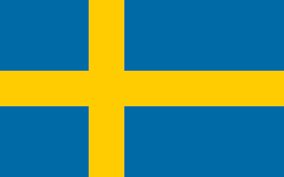
“You now… I had an Israeli girlfriend once…” He looked at a staff member passing by and smiled to himself. “She came here after the army…” He seemed comfortable with himself where he was on a trolley with his arm in a sling, talking to a stranger about his once upon a time Israeli girlfriend.
“…But it became complicated… Her boyfriend kept calling…” I could just about hear his words and had to stop my hand from placing itself behind my ear, making me look like an old man.
“Her boyfriend?”
“Yes… He was almost a psychopath you know… Kept ringing all the time… Wanting to know what she was up to… Asking her this… Telling her that…”
“Well, sounds like he had a reason!”
“What do you mean?” Sincere wondering eyes met mine.
“Well, if they were together and she was with you…” My arms gesticulated in the air.
“Yes… No…” He became quiet and after a long pause: “This was different… She wanted to leave him, you know… And she called her mum to ask for…” He searched for the words, letting his finger pull along the worn paint on the wall. “Like, advise or whatever… And… Well, the mum said: ‘Well, you go ahead, how can I say no when I’ve done the same thing myself?’”
“She’d done the same thing?” My head was turned to him, concentrated on what would come next.
“Yes… Her mum came from Tunisia; She was a Tunisian Jew and she had moved to Israel and had met an Israeli Arab there.”
“I say!”
“Yes… and he’d been a Muslim and… So, she felt like… She couldn’t be against it…”
“Guess she couldn’t!” I leant back in the chair again, contemplating the story’s twists and turns. The best meetings and conversations in life just happen. The house parties of my youth were often exciting, offering unexpected talks in the kitchen, while later years grown-up dinner parties always were tediously boring in their conversational predictability.
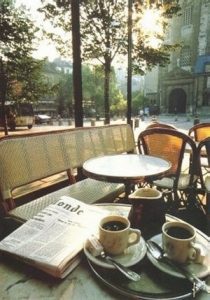
Slouched down on my chair and him half-laying on his trolley, it felt like we’d been sitting there together for some time already. It could have been a pub or one of those brasseries in Paris with heavy small round tables on the pavement where people have a coffee the size of a thumbnail and then sit there for two hours talking intensely and going through half a pack of cigarettes while looking at attractive people walking by on the street. Only this wasn’t Paris, but the Deep South London Hospital and our talk was likely to have been the quietest and slowest one taking place in the hospital that week. As for attractive people… The best looking one around might well have been Ibrahim[1]himself, who under his beard had a masculine gentleness and slight bothered, difficult look of the kind women often like.
Self-conscious, I glanced towards the nurses’ desk. A nurse sitting down, chatting with a patient and not doing much is not always looked kindly upon. There’s always some work to do. Cleaning, checking, studying – whatever. But my colleagues did their own thing and didn’t seem to mind. I stretched out my legs and he moved about on the trolley, trying to find a better position. Carefully, I adjusted the pillow under his bad arm and puffed up the one behind his back.
“That’s better, ta”, he said softly. Most patients get really impatient the next morning when everything is done and they are just waiting to go home. Not so this one. He seemed perfectly happy conversing with me, and it was mutual.
“So, you’re into kickboxing?” I said, starting off the talk again after yet another pause.
“Yeah… Quite a lot… Several nights a week.”
“How long have you done it for?”
“About two years… I used to fool about earlier… I guess you could say that I sinned.” A touch of embarrassment could be heard in his faint voice.
“Mmm… Where is it you’re from… I mean your parents?” I’d made the classic mistake. Working among London’s infinite ethnic minorities, it’s ok to ask about background, but equally important to acknowledge when people are born here.
“Pakistan, I was born here.”
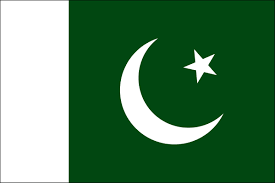
“Of course. Sorry.” I paused before asking him if his parents were alright with him having an Israeli girlfriend.
“My dad is not like me…” His thoughtful face lightened up in a cheeky smile. “When we’re discussing Israel and Palestine and all that, he’s always the one taking Israel’s side!” The smile widened even more. “Anyway, the Quran allows for you to marry a woman that belongs to a religion of the book, like the Torah or Bible,” he continued, more serious now.
“I take it you’re more into the religion than your dad?” I asked.
“… Yes… I’m quite… What do you say? …Devoted? …I spend quite a lot of time reading… It’s good to read… We should all read more… The Bible, The Quran, The Torah…” His hand moved like it waved the books through in the air. “Any good, truthful book… Have you read ‘Malcolm X’?”
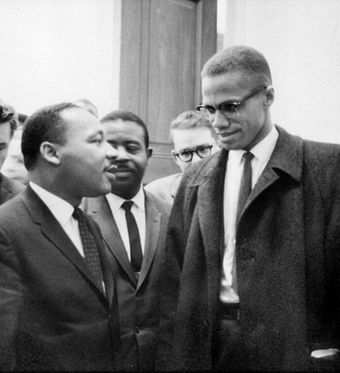


“Malcolm X?” Again, my mouth opened in surprise of the things that kept coming out of his mouth. I reached back to the dusty shelves of my youth. “His autobiography? No, didn’t really read it, only flicked through it. Good film though, the one by Spike Lee!”
“Yeah,” he nodded. “With Denzel Washington… The movie sticks to the book quite well… I got quite into that book, I did… Great book, you should read it! Made me think…”
A phone rang. Someone answered: It seemed to be about a woman having some lower abdominal pain after keyhole surgery. The nurse tried to assess and reassure over the phone: “Yes, that is normal… Sorry?… Are you bleeding? A little bit? Yes, normal yes… Well, if you’re worried you need to go to the GP… No, not back here…”, she raised her voice slightly. “Yes, the GP… Thank you, bye bye.”
“You alright, sir?” Another nurse stopped by for a moment, asking him how he was. A tiny gold stud glimmered in her nose. “Is he boring you? I’ve never seen him talk this much!” She nodded in my direction and laughed.
“Na… He’s an all right bruv… He’s cool…” He smiled approvingly. She asked him if his shoulder hurt and he insisted that it was nothing, that he was fine. She offered him a cuppa, which landed on the little wall shelf by his trolley before long. No other health care system can beat NHS when it comes to serving cuppas.

“…Then I went to Saudi…” He continued the conversation.
“Saudi? You were studying there for a while?”
“No… Just a two-week visit…” He gave me a quick glance, the mild embarrassment was there again. “About a couple of years ago…” he continued but hesitated, “Would it be ok to have some water?” His hand gave me his cup and I went to fetch him some. He took a couple of mouthfuls, fiddled about with the cup, looked down at his toes and then, more to himself than to me, “It’s different there.”
“I’m sure it is”, I agreed.
He was still the only patient on the ward. And after what must have been several minutes of silence he continued.
“Yeah, you know, there…” He stopped to think while looking out over the quiet ward with its worn light blue walls and empty trolleys and chairs. “When it’s time for prayer; everything shuts down… It just closes… You can’t miss it. And everything is halal and… It’s like designed for the faith… You can’t go wrong.” I nodded. I knew what he meant. It’s not only young devoted Muslims that appreciate these kinds of things. Jews come back from Israel, marvelling at a whole country observing the Shabbat on Friday evening, on the Outer Hebrides things are simply shut on Sunday and in Croydon in south London, a middle-aged plumber who couldn’t care less for religion, told me longingly of a time when he played football on the high street on Sunday afternoons, as it was a day for rest and no cars were about.
“I suppose it… gives meaning… sort of puts the religion into the everyday life,” I said.
“That’s the one!” His eyes brightened. “Here, it’s not quite like that… Here…” He threw his arm out in a gesture of disillusion.
“No, here it’s not quite like that,” I agreed.
“Too bad.”
“What is? That it’s not like that over here? I let an eyebrow raise slightly.
“Well yeah, not all the way but…
“The conflict starts when people try to make it here like it’s over there and sometimes with violent means…” I heard my voice; it had taken on a slightly authoritative tone.
“Yeah, but you know… If people read… They would know more…… They would understand why people do stuff… Why they go to Syria… They go because of political reasons…. Because of how Assad treats the Sunnis… What he’s doing to them… That’s why they go there, to fight that…”
The phone rang again and while listening to the nurse talking with someone on the other end I started to feel slightly uncomfortable. I wondered if he’d been considering going to Syria. I debated with myself on whether to pursue the subject. On one hand, this was a hospital, not a coffee shop. If the political discussion turns sour, maybe time to wrap it up? That’s the British way, right? On the other, maybe this guy was at crossroads, maybe my input could do good, give perspective? Or maybe not? And, struggling with the ambivalence, I remembered Prevent.  Prevent is the controversial government program that tries to stem radicalisation and recruiting of terrorism participants through educating all public services, like police, NHS and schools, to make them able to spot warning signs and, if deemed necessary, have them to report people who seem at risk.
Prevent is the controversial government program that tries to stem radicalisation and recruiting of terrorism participants through educating all public services, like police, NHS and schools, to make them able to spot warning signs and, if deemed necessary, have them to report people who seem at risk.
“Do you know anyone who has gone to Syria?” There. I said it. But it just felt stupid and I immediately regretted it.
“No, I don’t know anyone,” he said straight away. It was his quickest respond so far and I didn’t believe him. But it felt like I had made him lie. Looking deep in thought, he collected himself and then continued slowly:
“But you know… These things that happen sometimes… Terror and stuff… They don’t happen because of religion… They happen because of politics, because of Iraq, because of Afghanistan, because how the Israelis treat the Palestinians and those things… Like the 9/11… How they did it… The respond… Just how they did it…” He looked at his hands and I looked down the dirty floor. Pieces of paper, coffee stains and a plastic wrapper were lying about. The cleaner seemed to have been lazy last night. Truth is, the cleaner was lazy most nights.

“How did they do it?”
“Like bombing people in caves. You’re talking one of the biggest, most high-tech and well-organised attacks ever… And they start bombing people in caves!” He shook his head.
“You don’t think Bin Laden was behind it?”
“No… They didn’t have the resources…” He sipped his tea, looking thoughtful. “They were sitting in those caves, man! Anyway, there’s a lot of stuff out there about it…”
“Like what?”
“Well, I saw this movie… What is it called… ‘Fahrenheit 9/11’. I saw that a few times and then I read a book by this guy yeah, and he says… Well basically… He says that it was like… An American job… Well… That they knew about it anyway…”
“Right…”
“And Pentagon was never hit, you know!” He looked at me matter-of-factly.
“Pentagon wasn’t hit?”
“No, Pentagon wasn’t hit. There are no pictures of anything happening at the Pentagon.”
“Well…” I took a breath, looked around and wondered how long the ward would stay quiet for. I had been told off for talking too much with patients before. “Well, I don’t know the details… I said. “As I remember it, Pentagon was hit…” I sighed and pulled my fingers through the hair. “…I don’t know about Pentagon… I do know about the twin towers though. I’ve been up on those… So, clearly they were there, and they are no longer and I don’t buy any stuff about the Americans having done it themselves.”
“But this book…”
“But you can find a book about anything you’ll like!” My face felt hot. “There are books out there that will explain to you that the earth is flat!”
“Yeah… yeah…” He smiled bemusedly as he gave me an approving glance out of the corners of his eyes.

“But basically David”, he continued after a little while, “it shouldn’t be allowed to hurt other people… If we stuck to that, it would be alright. Like with the nurse that gave me a cup of tea before. If I would have made a drawing where Ganesh is blowing water out of his trunk or whatever… I mean… She probably would have been hurt, don’t you think? So, I choose not to do that.” His fine hands moved about gently as he spoke. Bless him, he came across as a bit of hippie now.
“Yes, we shouldn’t hurt”, I agreed, “but people get hurt for all sort of reasons… There are billions of people here, someone is got to be hurt by something…”
“But I wouldn’t say or draw things about her God so I don’t think it should be allowed to do that about mine.”
“Well yes… I see where you’re coming from, but… It’s this thing about freedom of speech…”
“Fine, talk what you want, but don’t insult, don’t hurt.”
“But who is going to decide what hurts?” I bet it will hurt someone somewhere if I say God doesn’t exist.”
“But some of those guys, like EDL and stuff like that, they hurt on purpose, they make drawings of the prophet to insult and to hurt!”
“Ok, and that might not be very wise or kind, but…”
“And they do it on purpose!” He sounded almost angry.
“Ok, but we can’t forbid that…”
“Why not?”
“Well… Freedom of speech is like…” I hesitated. “…Our religion… It’s kind of holy to us.”
“Right”, he made a dismissive gesture. “Well, I don’t think it should be allowed to say things where it’s obvious that it will hurt someone.” He was calm again and those dark eyes looked straight into mine. “If I would say for example… That the Holocaust didn’t happen… Or if I said it didn’t happen like they say it happened…” He paused. “People would get hurt by that – So I choose not to say that.”
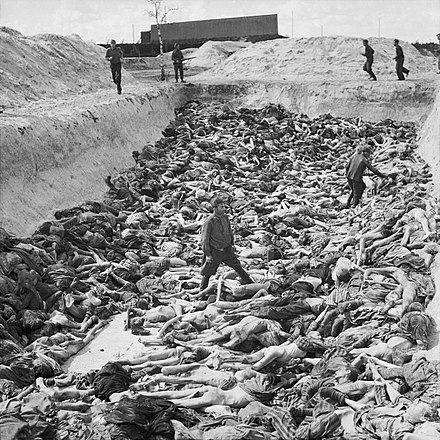
Light voice, neutral eyes. I fell silent and wished he would too. My mouth felt dry and there was something in my stomach. A cowardish hollowness. I stared down the floor. What he’d said had been merely hypothetical. Still, I felt a bit sick and didn’t say anything. Was this how he felt when people offended the Prophet? His comment called for, I think, sharing of historical facts and balanced explaining, all delivered in a spirit of rationale. I wanted to defend, not the honour of perished family members first of all, but history’s own right to be acknowledged and recognised. The stand out facts. The engineering and technical precision with which it was carried out. The vast logistics, the implantation, dutifully assisted by local civilians, and the industrial, incomprehensible, scale of it all. And the time and place where it took place: Less than seventy-five years ago – in the middle of Europe.
But my ability of composed, empathic argumentation had gone. The nurse in me had become obscured by raw emotion. It was, to quote a Mancunian poet, ‘too close to home and too near the bone’. I shuffled my feet in silence and just wanted the conversation to end.
“Who is looking after Ibrahim?” The receptionist had come in and stood in the middle of the ward looking cheerily at us where we sat in silence.
“Yes…” I raised a hand, trying to connect back to the normal world of where he’s a patient and I’m a nurse and all will be fine.
“Ok love, his escort is here!” The receptionist smiled a giant smile. Relieved, I stood up and lent Ibrahim an arm as he slid down from the trolley. Together we walked out of the ward.
The reception was bright. Light streamed in through the windows and the big glass doors at the far end of the room. A man stood by the desk.
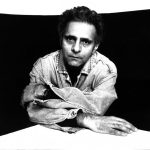
“All right? Has he behaved himself?” A cheeky smile on a friendly face. The uncle, one of thousand Pakistani-London uncles. With a three days stubble and a black polo shirt loose on top of dated jeans and trainers, he looked like a slightly unkempt, young Hanif Kureishi.
“Sure…” I smiled back.
“Bruv…” Ibrahim more touched than shook my hand. “…Thank you bruv, thank you very much. Take care.”
I watched the uncle holding up the doors as the devoted Deep South kickboxer, with his straight back and thoughtful gait, walked out into the weak London sun.
David Ingemarsson 2019
[1]Not his real name. Some things have been altered in order to keep the patient’s identity secret. The dialogue, however, is authentic.

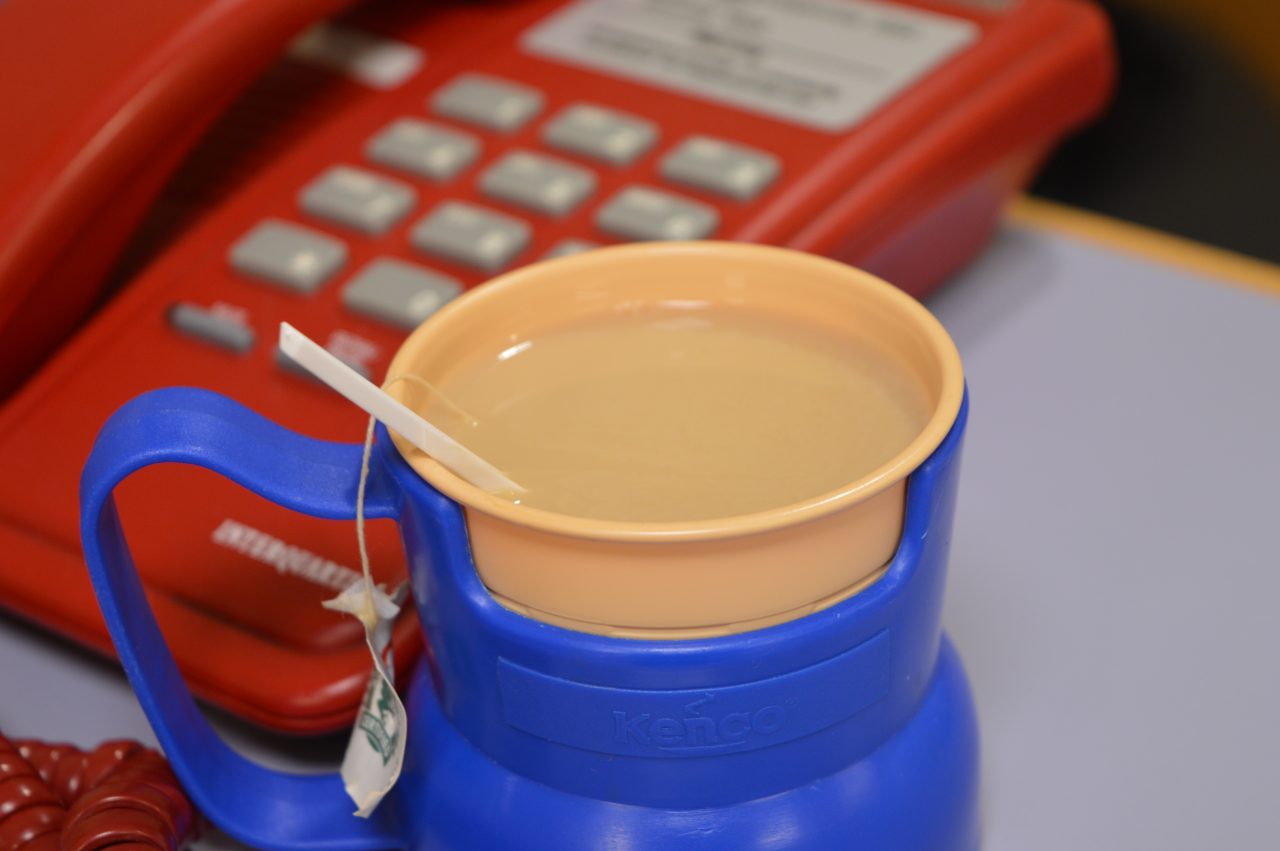

Very well written! Did you mention the conversion to any senior nurse?
Good story, I really enjoyed it even at the end…his denial of the Holocaust gave me the usual feeling of incredulity and anger at people’s ignorance…
Well done David, more please!
Lucy
It gives a true glimps into a pationt/nurse relatioships and into the minds of the vast London’s public. Not a short story….I liked your reserved thaughts.